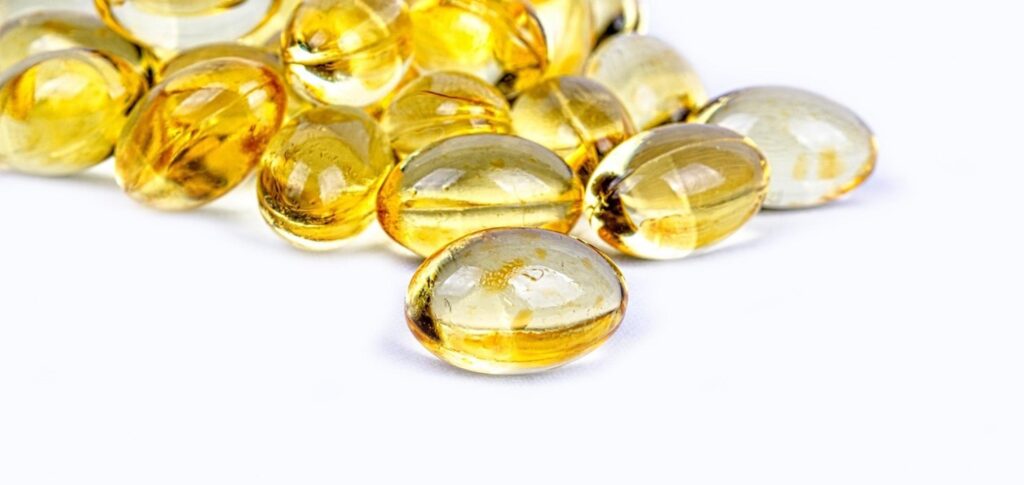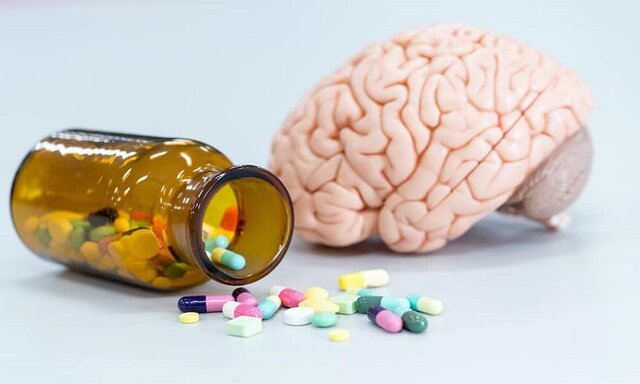Certain nutrients can help improve brain function. For example, lacking B vitamins can lead to memory loss and impaired cognitive function.
According to Health Benefits Times, “Vitamin B1 helps the brain convert nutrients. This vitamin can help improve mental fatigue, memory loss, and confusion. Vitamin B2 deficiency can lead to impaired brain development in young people and behavioral problems. Niacin deficiency may make you more prone to depression, short-term memory impairment, and anxiety. Vitamin B6 also helps produce the neurotransmitters dopamine and serotonin.
Vitamin B12
Vitamin B12 is an essential nutrient in myelin, the covering that surrounds the nervous system. Low levels of this vitamin can lead to memory loss. It also allows more oxygen to be transported to brain cells and reduces inflammation. A study published in the medical journal Neurology found that people who lacked adequate levels of vitamin B12 were more likely to score lower on cognitive tests and even have smaller brain sizes.
If you’re experiencing brain fog or difficulty remembering, a vitamin B12 deficiency could be a possible cause. A study published in the journal Neurology showed that consuming foods rich in vitamin B12 can reduce the risk of developing Alzheimer’s disease later in life. Brain fog and memory problems can be two warning signs of vitamin B12 deficiency.

Colleen
Choline helps the brain function better and increases fat metabolism. The brain uses this nutrient to produce acetylcholine, one of the most essential neurotransmitters in intelligence, memory function, and synaptic structural integrity. Acetylcholine in the body decreases with age, and choline helps stimulate its production. Dimethylaminoethanol (DMAE) is chemically similar to choline and helps produce and maintain neurotransmitter function, improving memory and mood.
lecithin
Lecithin helps fat metabolism. This material has a share of about 30% of the dry weight. When buying lecithin supplements, choose samples that contain at least 30% phosphatidylcholine. Choline and lecithin are beneficial for Parkinson’s disease. Inositol is another essential substance that, together with choline, helps fat metabolism and brain strengthening.
Phosphatidylserine
Phosphatidylserine is a phospholipid that has shown the ability to improve memory and cognitive skills. This substance helps to maintain the integrity of brain tissue and the fluidity of cell membranes, which is helpful for neuron transmission. Phosphatidylserine is naturally produced in brain cells, but its production rate decreases with age.
Vitamin E
Vitamin E helps protect the brain from free radical damage, which delays the onset of dementia. Good food sources for this vitamin include edible nuts and seeds, olives, olive oil, avocados, wheat germ, whole grains, and leafy vegetables. Suppose you need to get more vitamin E from your diet. In that case, you can start taking a supplement after consulting your doctor.
Note: If you are taking blood thinners, consult your doctor before taking a vitamin E supplement.
Vitamin C
Vitamin C deficiency can lead to hypersensitivity, fatigue, and depression. Vitamin C acts as an antioxidant and protects nerve cells from free radicals. Good food sources for this vitamin include citrus fruits, bell peppers, tomatoes, and leafy vegetables such as spinach and collard greens. Vitamins E and C together can provide a stronger protective effect against dementia.
Minerals: calcium, magnesium, boron, iron, potassium, zinc
Calcium and magnesium are needed for the proper functioning of the brain. Boron helps to strengthen mental alertness. Iron helps in the production of neurotransmitters and DNA. Without magnesium, we may be more prone to confusion, lethargy, and depression. Potassium is needed to maintain normal levels of neurotransmitters. During pregnancy, zinc helps the proper development of the fetal brain.
Vitamin A and Vitamin D
Vitamin A helps to transfer more oxygen to the brain and prevent fatigue. On the other hand, a study published in the Journal of Neurology, Neurosurgery, and Psychiatry showed that low vitamin D levels affect brain function. You can increase the levels of this nutrient in your body by being exposed to sunlight or taking supplements.

Omega 3 fatty acids
Omega-3 fatty acids are essential for brain health because about 60% of this organ comprises fat. Neurons are also composed of fats and nerve tissue. DHA fatty acid, the most abundant fat in the brain, and EPA fatty acid help improve the health of central nervous system cells and provide structural support. The mother’s milk contains DHA, and therefore, it is recommended that the baby be fed with the mother’s milk.
Low levels of DHA have been linked to memory loss and Alzheimer’s disease, and the need for this nutrient increases with age.
Acetylcarnitine
Acetylcarnitine is an amino acid and vitamin-like compound that helps strengthen memory by stabilizing membranes, increasing energy production, and increasing the efficiency of neurotransmission. This substance stimulates the brain’s production and absorption of acetylcholine.

ginger
A study showed that ginger extract helps inhibit the production of inflammatory chemicals in the brain, slowing down the progress of neurodegenerative disorders such as Alzheimer’s.
